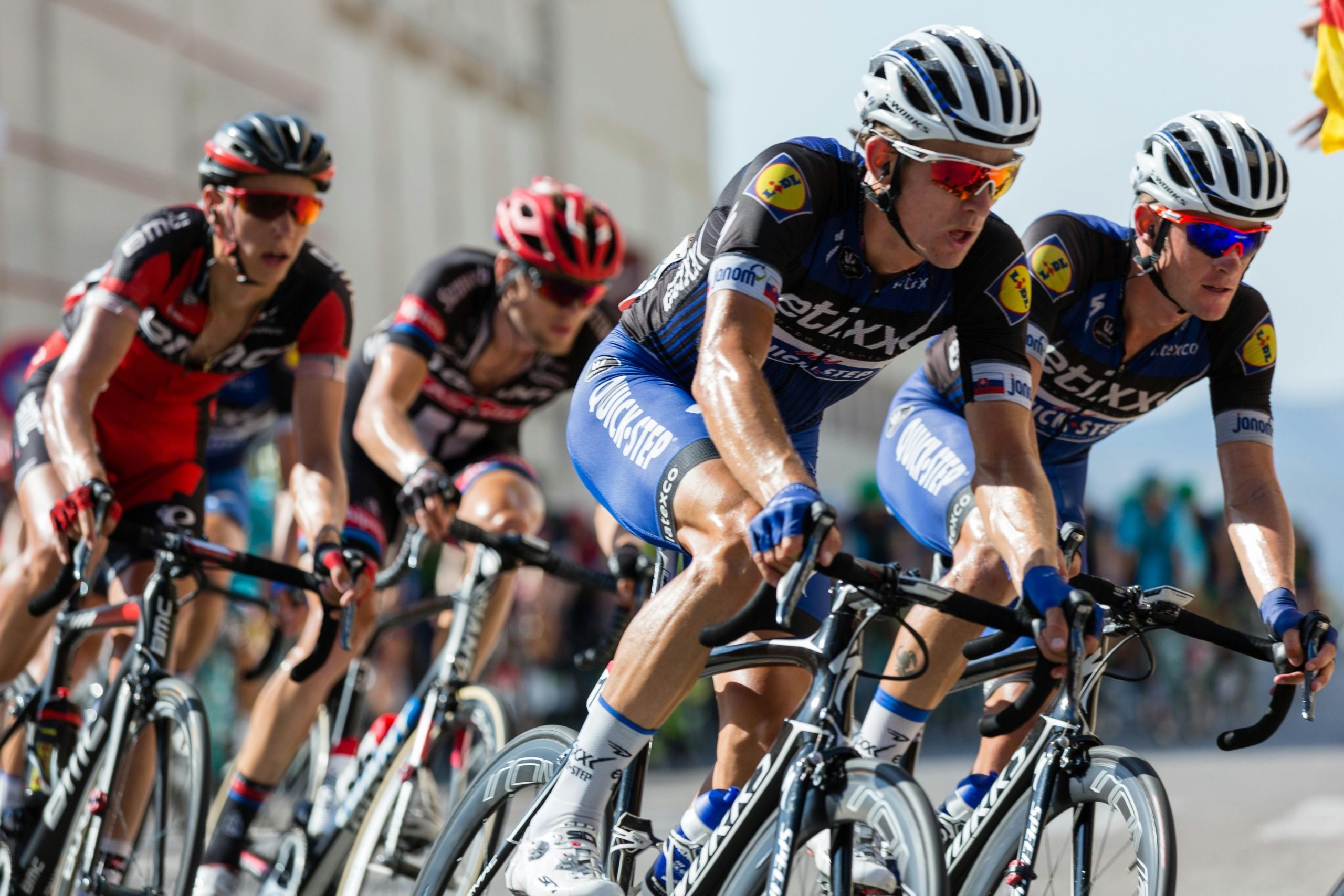Table of Contents
![]()
Nutrition is a cornerstone of athletic performance, providing the energy, nutrients, and recovery needed to excel in sports and physical activities. Proper dietary choices can enhance endurance, improve muscle recovery, and prevent injuries. This article offers detailed insights into essential nutrition tips for athletes, covering macronutrients, micronutrients, hydration, timing, special considerations, and supplements.
I. Macronutrient Needs
A. Carbohydrates
Carbohydrates are the primary fuel source for athletes. They are crucial for maintaining energy levels and enhancing performance, especially during high-intensity and endurance activities. Athletes should aim to consume approximately 45-65% of their total daily calories from carbohydrates. The timing of carbohydrate intake is also important: consuming carbs before exercise ensures energy availability, during exercise helps sustain performance, and after exercise aids in glycogen replenishment.
Sources of carbohydrates include whole grains (like brown rice and oats), fruits (such as bananas and berries), vegetables (like sweet potatoes and spinach), and legumes (such as beans and lentils).
B. Proteins
Proteins are essential for muscle repair and growth. Athletes typically require 1.2 to 2.0 grams of protein per kilogram of body weight per day, depending on the intensity and type of activity. Consuming protein post-exercise is particularly beneficial, as it supports muscle recovery and repair.
High-quality protein sources include lean meats (such as chicken and turkey), dairy products (like milk and yogurt), eggs, legumes (like chickpeas and black beans), and protein supplements (such as whey or plant-based proteins).
C. Fats
Fats provide long-term energy and are crucial for hormone production and overall health. Athletes should aim to get about 20-35% of their daily calories from fats. It is important to focus on healthy fats, such as unsaturated fats and essential fatty acids, while moderating saturated and trans fats.
Good sources of fats include nuts (like almonds and walnuts), seeds (such as flaxseeds and chia seeds), avocados, and fatty fish (like salmon and mackerel).
II. Micronutrient Needs
A. Vitamins
- Vitamin D: Supports bone health and immune function. It can be obtained through sunlight exposure and foods such as fatty fish, fortified dairy products, and eggs.
- Vitamin C: Acts as an antioxidant and is vital for collagen synthesis, which supports tissue repair. Sources include citrus fruits, strawberries, and bell peppers.
- B Vitamins: Crucial for energy production. B vitamins are found in whole grains, meats, eggs, and dairy products.
B. Minerals
- Iron: Essential for oxygen transport and energy levels. Iron-rich foods include lean meats, legumes, and fortified cereals.
- Calcium: Important for bone health and muscle function. Good sources are dairy products, leafy greens, and fortified plant-based milks.
- Magnesium: Plays a role in muscle relaxation and energy production. It is found in nuts, seeds, whole grains, and leafy green vegetables.
III. Hydration
A. Importance of Staying Hydrated
Hydration is vital for regulating body temperature, preventing dehydration, and maintaining performance. Dehydration can impair endurance, increase the risk of injury, and hinder recovery.
B. Hydration Strategies
- Pre-hydration: Ensure adequate fluid intake before exercise, ideally 16-20 ounces of water 2-3 hours prior to physical activity.
- During Exercise: For activities lasting over an hour, consider electrolyte-rich beverages to maintain fluid balance and replace lost electrolytes.
- Post-Exercise: Rehydrate with water or an electrolyte beverage to replace fluids lost during exercise.
C. Recommended Fluids
While water is typically sufficient for most exercise durations, sports drinks may be beneficial for extended or intense activities, providing electrolytes and carbohydrates.
IV. Timing of Nutrition
A. Pre-Exercise Nutrition
Consume a balanced meal 3-4 hours before exercise, focusing on carbohydrates, moderate protein, and low fat to ensure optimal energy levels and digestion.
B. During Exercise
For long-duration activities, consume easily digestible carbohydrates and fluids to maintain energy levels. Examples include energy gels, sports drinks, or small snacks like bananas.
C. Post-Exercise Recovery
Within 30 minutes of finishing exercise, consume a meal or snack that combines protein and carbohydrates to promote muscle repair and glycogen replenishment. A typical recovery meal could be a smoothie with protein powder, fruit, and yogurt or a chicken sandwich with whole grain bread.
V. Special Considerations
A. Different Types of Athletes
- Endurance Athletes: Focus on higher carbohydrate intake to fuel prolonged activity and maintain energy levels. Emphasize hydration and electrolyte balance.
- Strength Athletes: Prioritize protein for muscle repair and growth. Carbohydrates are also important for energy, especially around training sessions.
B. Weight Management and Body Composition
Balancing calorie intake with expenditure is crucial for maintaining optimal body composition. Strategies for gaining or losing weight should be tailored to individual goals while ensuring sufficient nutrition for performance.
C. Dietary Restrictions and Preferences
- Vegetarian and Vegan Diets: Ensure adequate intake of protein, iron, calcium, and vitamin B12 through plant-based sources or supplements if needed.
- Food Allergies and Sensitivities: Manage dietary choices to avoid allergens while meeting nutritional needs through alternative foods.
VI. Supplements
A. Common Supplements for Athletes
- Protein Powders: Useful for meeting protein needs, especially for those with increased requirements or limited dietary protein. Options include whey, casein, and plant-based proteins.
- Creatine: Enhances performance in high-intensity activities by increasing muscle energy stores. It is widely used for strength and power training.
- Branched-Chain Amino Acids (BCAAs): Support muscle recovery and reduce muscle soreness. They are particularly helpful for athletes involved in intense training.
B. Evaluating the Need for Supplements
Supplements should be considered based on dietary gaps and individual needs. Consulting with a healthcare provider or nutritionist can help in selecting appropriate supplements and ensuring they complement the overall diet.
VII. Practical Tips for Implementation
A. Creating a Balanced Meal Plan
Develop a meal plan that incorporates a variety of nutrient-dense foods. Sample meal ideas include a quinoa salad with mixed vegetables and chicken for lunch or a Greek yogurt parfait with fruit and nuts for a snack.
B. Monitoring and Adjusting Nutrition
Track performance and energy levels to assess the effectiveness of your nutrition plan. Adjust intake as needed based on changes in training intensity or goals.
VIII. Conclusion
Nutrition plays a critical role in athletic performance and recovery. By focusing on balanced macronutrient intake, meeting micronutrient needs, staying hydrated, and timing meals appropriately, athletes can enhance their performance and overall health. Personalizing nutrition strategies and consulting with experts can further optimize results and support long-term success in sports.
Share This





Be the first to comment